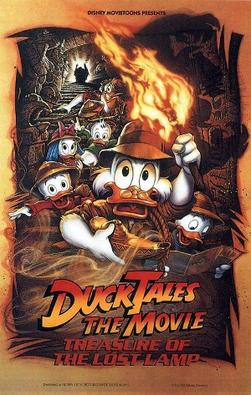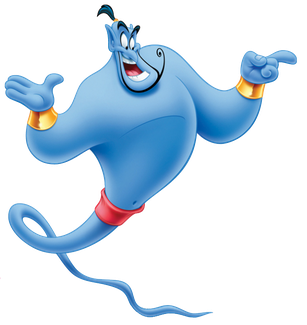
"Where Is Everybody?" is the first episode of the American anthology television series The Twilight Zone and was originally broadcast on October 2, 1959, on CBS. It is one of the most realistic Twilight Zone episodes, as it features no supernatural elements and is based on fairly straightforward extrapolation of science.
"The Sixteen-Millimeter Shrine", starring Ida Lupino, is episode four of the American television series The Twilight Zone. It originally aired on October 23, 1959, on CBS. The title is a reference to 16 mm film.

"Time Enough at Last" is the eighth episode of the American anthology series The Twilight Zone, first airing on November 20, 1959. The episode was adapted from a short story by Lynn Venable, which appeared in the January 1953 edition of If: Worlds of Science Fiction.
"The Man in the Bottle" is episode 38 of the American television series The Twilight Zone. It originally aired on October 7, 1960, on CBS.
"Nervous Man in a Four Dollar Room" is episode 39 of the American television anthology series The Twilight Zone. It originally aired on October 14, 1960, on CBS.
"The Night of the Meek" is episode 47 of the American television anthology series The Twilight Zone. It originally aired on December 23, 1960, on CBS. It was one of the six episodes of the second season which were shot on videotape in a short-lived experiment aimed to cut costs.
"A Hundred Yards Over the Rim" is episode 59 of the American television anthology series The Twilight Zone, and is the 23rd episode of the second season. It originally aired on April 7, 1961, on CBS. The episode was written by series creator and showrunner Rod Serling. It was directed by filmmaker Buzz Kulik, and was shot on film, unlike later episodes. This was the first of two appearances on The Twilight Zone by Cliff Robertson, the second being in the 1962 episode "The Dummy".

Aladdin is a Middle-Eastern folk tale. It is one of the best-known tales associated with One Thousand and One Nights, despite not being part of the original text; it was added by the Frenchman Antoine Galland, based on a folk tale that he heard from the Syrian storyteller Hanna Diyab.

DuckTales the Movie: Treasure of the Lost Lamp is a 1990 American animated adventure fantasy film based on the animated television series DuckTales and loosely based on the tale of Aladdin and the Wonderful Lamp. Produced and directed by Bob Hathcock and from a screenplay by Alan Burnett, the film features the series' cast of Alan Young, Terrence McGovern, Russi Taylor, and Chuck McCann, with Richard Libertini, Rip Taylor and Christopher Lloyd voicing new characters. The events of the film take place between the third and fourth seasons of DuckTales.

Who Censored Roger Rabbit? is a fantasy mystery novel written by Gary K. Wolf in 1981. It was later adapted by Disney and Amblin Entertainment into the critically acclaimed 1988 film Who Framed Roger Rabbit.

Twilight Zone: The Movie is a 1983 American sci-fi horror anthology film produced by Steven Spielberg and John Landis. Based on Rod Serling's 1959–1964 television series of the same name, the film features four stories directed by Landis, Spielberg, Joe Dante, and George Miller. Landis' segment is an original story created for the film, while the segments by Spielberg, Dante, and Miller are remakes of episodes from the original series. The film's cast includes Dan Aykroyd, Albert Brooks, Scatman Crothers, John Lithgow, Vic Morrow, and Kathleen Quinlan. Original series cast members Burgess Meredith, Patricia Barry, Peter Brocco, Murray Matheson, Kevin McCarthy, Bill Mumy, and William Schallert also appear in the film, with Meredith assuming Serling's role as narrator.
"The Brain Center at Whipple's" is episode 153 of the American television series The Twilight Zone. It originally aired on May 15, 1964 on CBS.
"Kick the Can" is episode 86 of the American television anthology series The Twilight Zone. It originally aired on February 9, 1962, on CBS.

"In Praise of Pip" is an episode of the American television anthology series The Twilight Zone. In this episode, after learning that his soldier son has suffered a mortal wound in an early phase of the Vietnam War, a crooked bookie encounters a childhood version of his son.
"A Piano in the House" is episode 87 of the American television anthology series The Twilight Zone. It originally aired on February 16, 1962, on CBS.

A Thousand and One Nights is a 1945 tongue-in-cheek American adventure fantasy film set in the Baghdad of the One Thousand and One Nights, directed by Alfred E. Green and starring Evelyn Keyes, Phil Silvers, Adele Jergens and Cornel Wilde.
Genies or djinns are supernatural creatures from pre-Islamic and Islamic mythology. They are associated with shapeshifting, possession and madness. In later Western popular representation, they became associated with wish-granting and often live in magic lamps or bottles. They appear in One Thousand and One Nights and its adaptations, among other stories. The wish-granting djinns from One Thousand and One Nights, however, are the divs of Persian origin, not the Arabian djinns.

Arthur James Millhollin was an American character actor.

The Genie is a fictional character who appeared in Walt Disney Pictures' animated film Aladdin (1992), later appearing in other media of the Aladdin franchise as one of its main characters, as well as throughout other Disney media. He was voiced by Robin Williams in the first film, on whom the character's mannerisms were based. Following a contract dispute between Williams and Disney, Dan Castellaneta voiced the Genie in the direct-to-video feature The Return of Jafar, as well as the television series. Williams reprised the role for the final film installment Aladdin and the King of Thieves, and the character's own educational mini-series Great Minds Think for Themselves.









